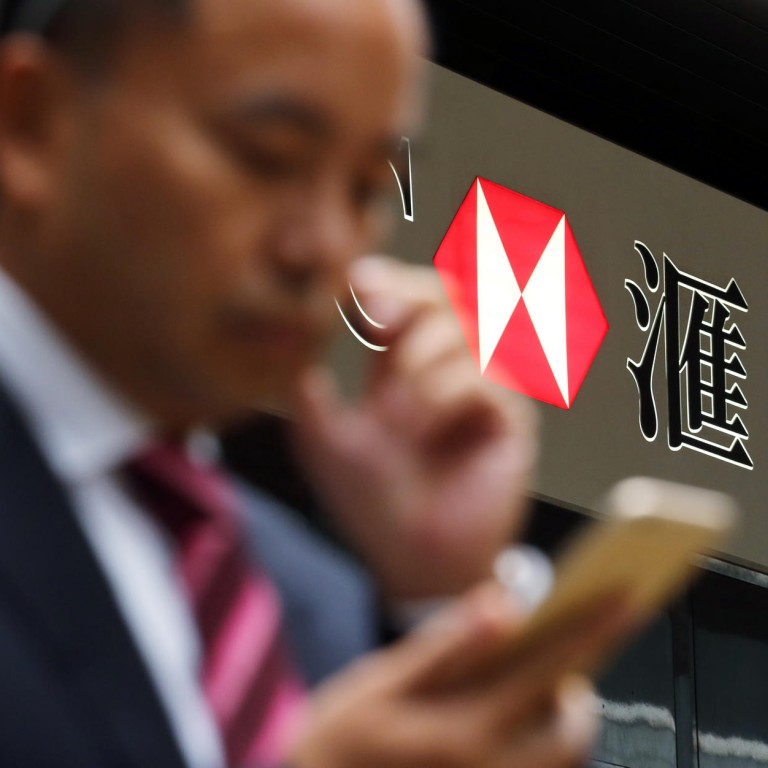
New | Investors left with puzzle after HSBC lowers expectations
With the bar set lower on key profitability measures, investors are left wondering where growth can be achieved as bank's costs jump
If you can't hit the target, then lower it. That seems to be the strategy emerging at HSBC Holdings for the next three to five years as the bank tries to reverse a 17 per cent drop in pre-tax profits last year.
Analysts have called for stronger guidance on how the bank will grow its business and profits in an increasingly difficult regulatory environment. HSBC's new annual report, however, struck a passive tone on many of its ailments, such as soaring regulatory costs and the cost of raising capital.
The response to those challenges, namely lowering targets for key measures of profitability, has been discouraging for investors looking for a conclusion to a restructuring programme that began four years ago.
Shares of Europe's largest lender yesterday closed down 3.5 per cent in Hong Kong at HK$69.45, its lowest price since September 2012, following a slide in London on Monday after HSBC reported results that undershot even some of the more pessimistic forecasts.
The most ominous change to the plan HSBC laid out four years ago was the downgrading of its goal for return on equity, a headline measure for profitability.
When chief executive Stuart Gulliver began cutting away at inefficiencies in HSBC's global businesses in 2011, he aimed for a 12-15 per cent annual return on equity. More than four years later, the best he says investors can hope for is "more than 10 per cent" over the next three to five years, as rapidly rising regulatory and capital costs eat into returns.
"We could not have foreseen the full extent of the additional costs and capital commitment that would subsequently be asked of us," Gulliver said in the bank's earnings report for 2014. "The pace of change has been exceptional. As a consequence, some of the targets that we set for the group in 2011 are no longer realistic."
They'll need to do much better even to hit their new targets. There is a lot of scepticism among analysts on the bank reaching these anytime soon
The new target for growth reflects the reality of the bank's performance and helps explain why lowering the bar was necessary. Return on equity fell to 7.3 per cent last year from 9.2 per cent in 2013, under what the bank's chief financial officer called growing pressure on capital requirements.
Some analysts have flagged even the revised target as a challenge in the near term.
"They'll need to do much better even to hit their new targets," Gary Greenwood, a Britain-based analyst at Shore Capital Group told the . "There is a lot of scepticism among analysts on the bank reaching these anytime soon."
Some analysts say the shifts in targets are necessary because HSBC is too big to manage effectively and argue that it should be broken up.
Gulliver insists his multi-year plan to simplify the sprawling bank that operates in 73 countries and territories worldwide - even after the closure of 77 businesses and axing of more than 50,000 jobs since he took charge - remains a work in progress and doesn't rule out further cost cutting to revive profitability. One worry for investors is that HSBC's hard cost-efficiency target, a major metric for tracking the percentage of revenues swallowed up by costs, has been scrapped. At 67.3 per cent in 2014, HSBC's cost-efficiency ratio was almost 20 percentage points above the rate that Gulliver marked out in 2011.
Instead, HSBC is pledging to keep the rising tide of costs below growth in revenues. Revenue fell 5.2 per cent to US$61.2 billion last year, while operating costs climbed by 6.1 per cent to US$37.85 billion. Analysts had expected growth in costs to come in at around 4 per cent.
"Management says it will target revenue growth greater than cost growth, but 2014 performance will not inspire confidence," Nomura analyst Chintan Joshi wrote in a note to clients on Tuesday.
